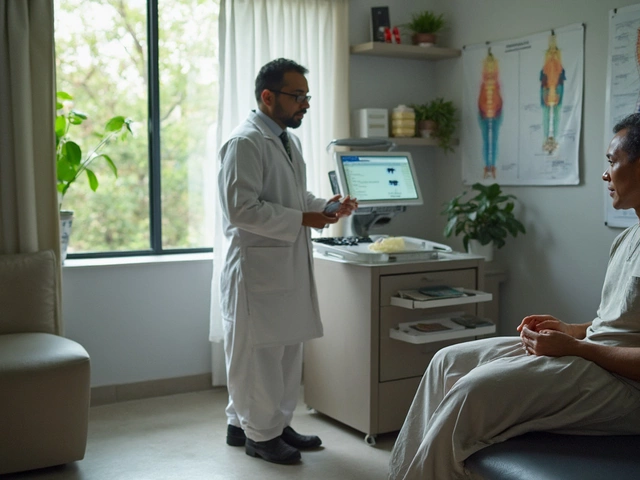Digestion: What Your Gut Needs to Stay Healthy
If you’ve ever felt bloated after a meal or wondered why a certain drug upset your stomach, you’re not alone. Digestion is the body’s way of turning food into fuel, and anything that interferes can make you feel lousy. This page pulls together the most useful articles on digestion, gut health, and how medicines might mess with your stomach.
How Food and Medicine Interact in Your Stomach
Many medicines sold in India contain ingredients that can irritate the lining of the gut. For example, certain painkillers and antibiotics are known to disrupt the natural balance of gut bacteria. When you combine those drugs with heavy, spicy meals, the result can be heartburn, nausea, or even diarrhea. One of our articles, “Can You Eat Bananas While Taking Metformin?” breaks down why a simple fruit can change blood sugar levels when you’re on a diabetes drug.
Understanding these interactions helps you plan meals around your prescription schedule. A good rule of thumb is to take medication with a glass of water and a light snack unless your doctor advises otherwise. If a drug consistently gives you stomach pain, ask your pharmacist about an alternative formulation or a protective agent like a proton‑pump inhibitor.
Practical Tips to Boost Digestion Naturally
Beyond avoiding drug‑food clashes, there are everyday habits that keep the digestive tract humming. Drinking warm water first thing in the morning wakes up the gut and improves peristalsis. Adding a pinch of ginger to tea can soothe inflammation and reduce gas.
Fiber is another cornerstone. Foods like lentils, whole grains, and leafy greens bulk up stool, making it easier to pass. If you’re new to fiber, increase intake slowly to avoid bloating. Our article on “Best Drinks to Flush Your Liver Naturally” also lists herbal teas that support liver function, which indirectly aids digestion by processing toxins faster.
Stress management matters, too. The gut has its own nervous system, so anxiety can trigger cramps or IBS‑like symptoms. Simple breathing exercises, a short walk after meals, or a quick meditation session can calm the nervous signals that tell your stomach to work harder than it needs to.
Lastly, keep an eye on your body’s signals. Persistent heartburn, unexplained weight loss, or chronic constipation should prompt a visit to a gastroenterologist. Early detection of issues like acid reflux or ulcer disease makes treatment far easier.
By combining smart medication habits with natural digestion boosters, you can dodge many common gut problems. Explore the articles linked under the “digestion” tag to dive deeper into each topic, from Ayurvedic approaches to modern toxicology insights. Your gut will thank you.

Best Ayurvedic Dinner Foods: What to Eat at Night for Health & Digestion
Curious about what Ayurveda suggests as the best dinner? Discover simple, real-world food ideas, science-backed eating tips, and how to make your evening meal lighter and healthier.

What Should I Eat First in the Morning Ayurveda: Simple Morning Food Rituals
Ever wondered what Ayurveda says about breakfast? This article gets into which foods to eat first thing in the morning for optimal digestion and energy, according to ancient Ayurvedic wisdom. You'll learn practical tips on morning food choices and easy step-by-step rituals. This isn't just theory—it comes packed with facts and reasons behind every recommendation. Let Ayurveda make your mornings stronger and calmer.

How to Eat Properly According to Ayurveda: Simple Rules That Actually Work
This article breaks down how to eat properly according to Ayurveda, the ancient Indian system of health. You'll learn practical tips like meal timing, food combinations, and mindful eating that Ayurvedic experts actually follow. Discover how simple habits can make your meals easier to digest and help you feel better every day. Plus, find out which mistakes most people make and how to avoid them. Everything is explained in a way that's easy to understand and apply, even if you're totally new to Ayurveda.

Three Agonizing Surgeries You Should Know About
Apr, 5 2025



